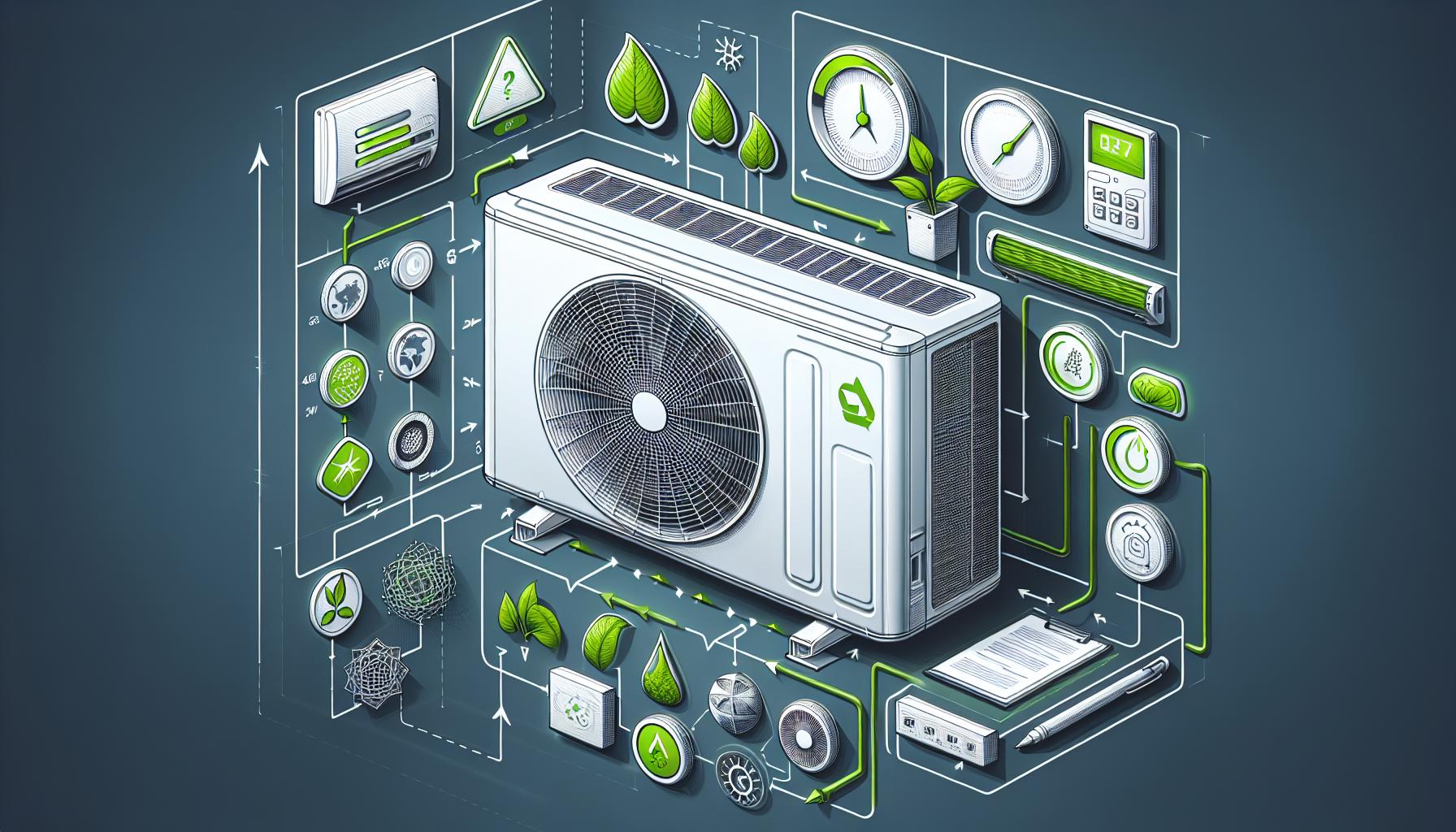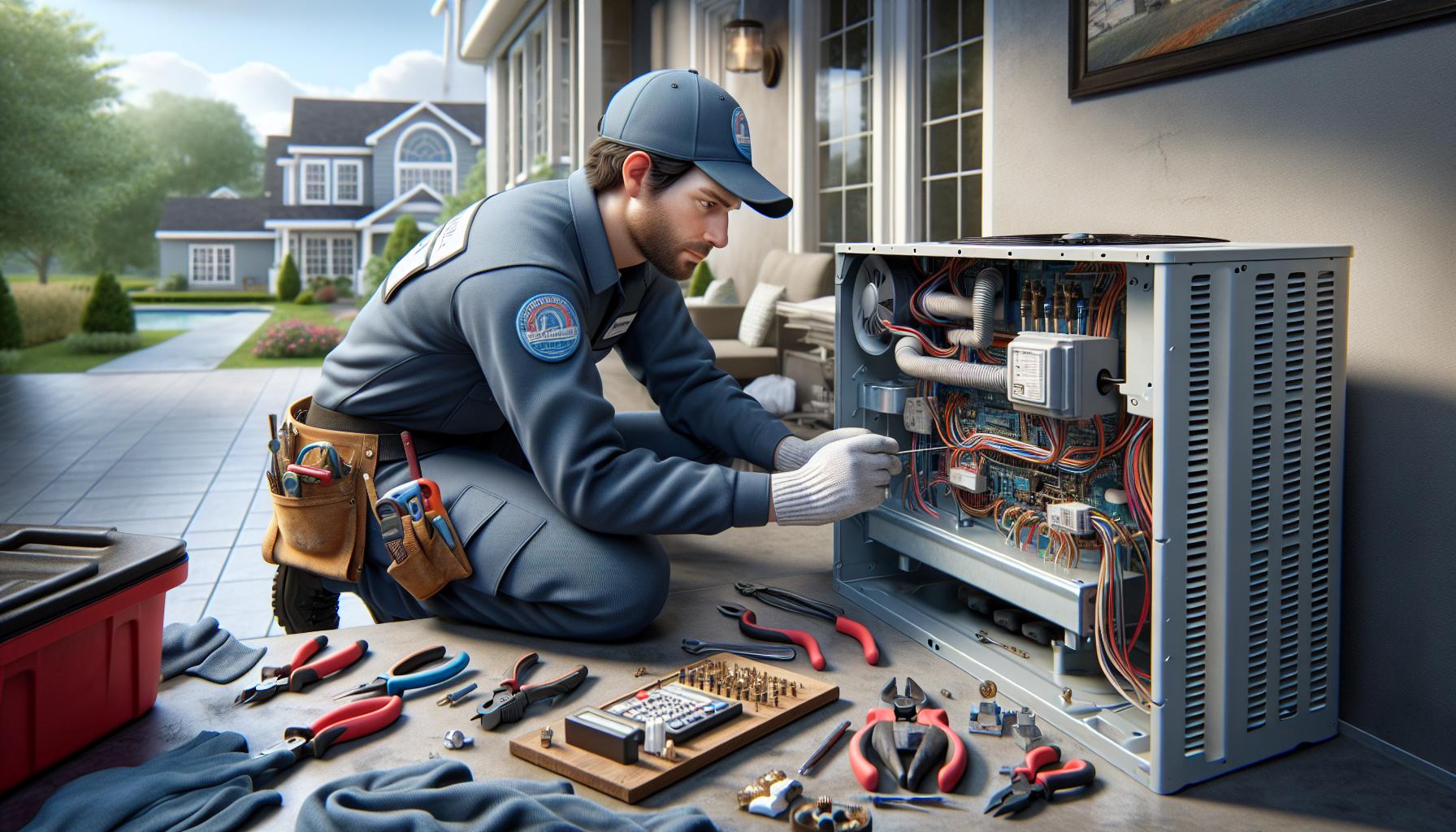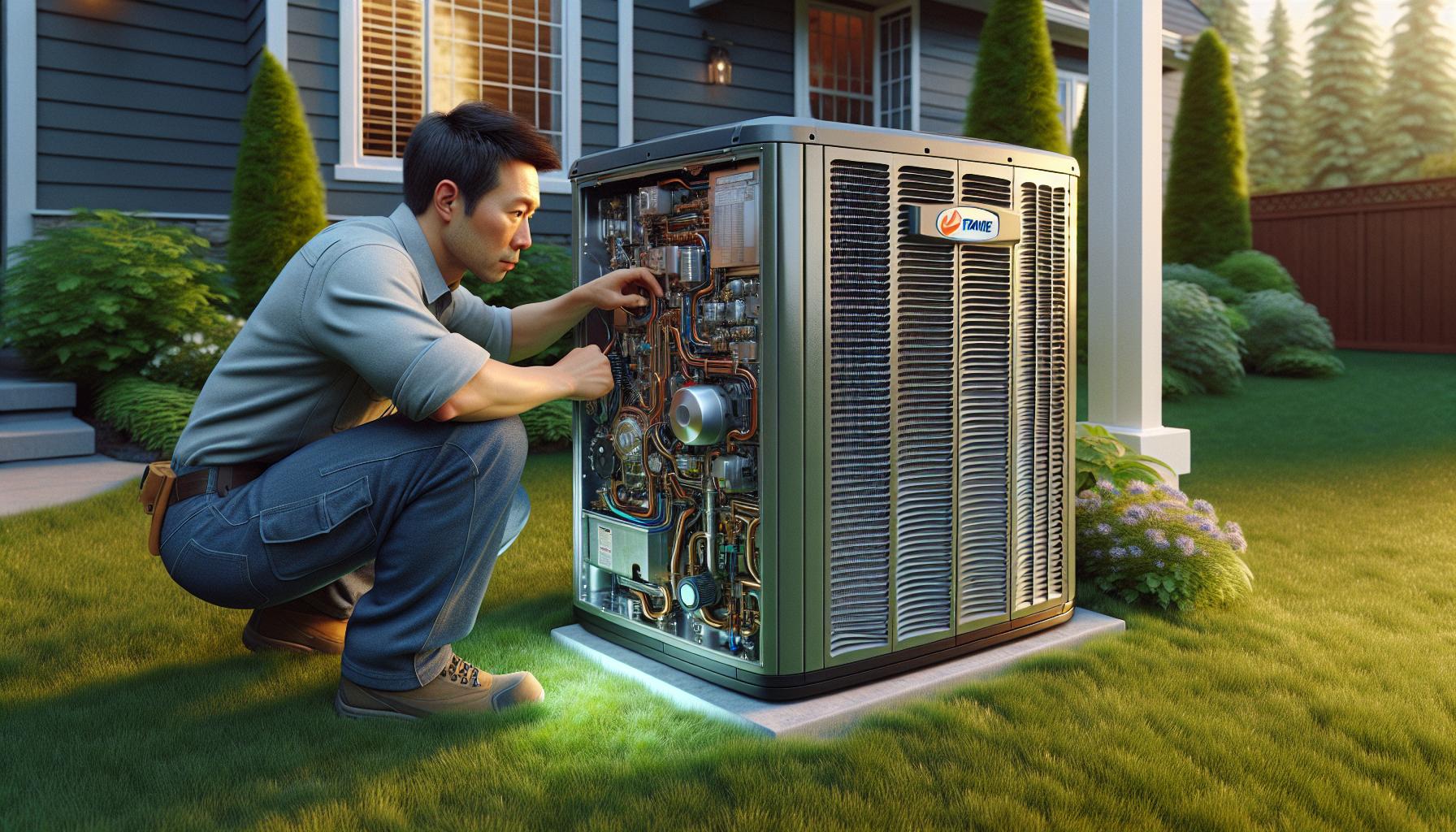Ever wondered if your air conditioner is sipping gas like your car does? It’s a common query for new homeowners trying to get a grip on their utilities. Well, it’s time to set the record straight: your home air conditioner relies solely on electricity to keep you cool.
While your vehicle’s AC does indeed use gas to function, powering the alternator and eventually the engine, this isn’t the case in your home. Understanding this difference is crucial, especially when you’re looking to manage your energy bills effectively. Stay tuned as we investigate into the specifics and help you navigate the ins and outs of your AC’s energy consumption.
Does Air Conditioner Use Gas
When you’re pondering whether your air conditioner runs on gas or electricity, it’s essential to distinguish between the types found in cars and those in homes. Home air conditioners exclusively use electricity to maintain your comfort. They draw power from your home’s electrical supply and their usage directly influences your electricity bills.
Home AC: Electricity-Focused Energy Consumption Electricity fuels the entire operation of your home’s cooling system. When the summer heat escalates, your reliance on the AC unit increases, resulting in higher electricity costs. To balance comfort and cost:
- Monitor usage during peak hours: Cut down on electricity use during these periods to save money.
- Slightly raise the thermostat: Even a degree or two can lead to substantial savings.
Car AC: A Gas-Powered Necessity
Conversely, your car’s air conditioning does require gas to operate, albeit indirectly. The AC system in a car draws energy from the alternator, powered by the engine, which in turn necessitates fuel. Hence, using your car’s AC impacts the overall fuel efficiency.
Efficient Use of Car’s AC
Understanding when and how to use your car’s AC can lead to more efficient fuel consumption. Here’s what to keep in mind:
- Use AC at higher speeds: This is more fuel-efficient than open windows which create aerodynamic drag.
- Limit AC use: When possible, especially during city drives where frequent stops can lead to wasteful fuel consumption.
Your awareness of these energy dynamics enables you to make informed choices that can alleviate the strain on your finances without compromising on your comfort.
How Does an Air Conditioner Work
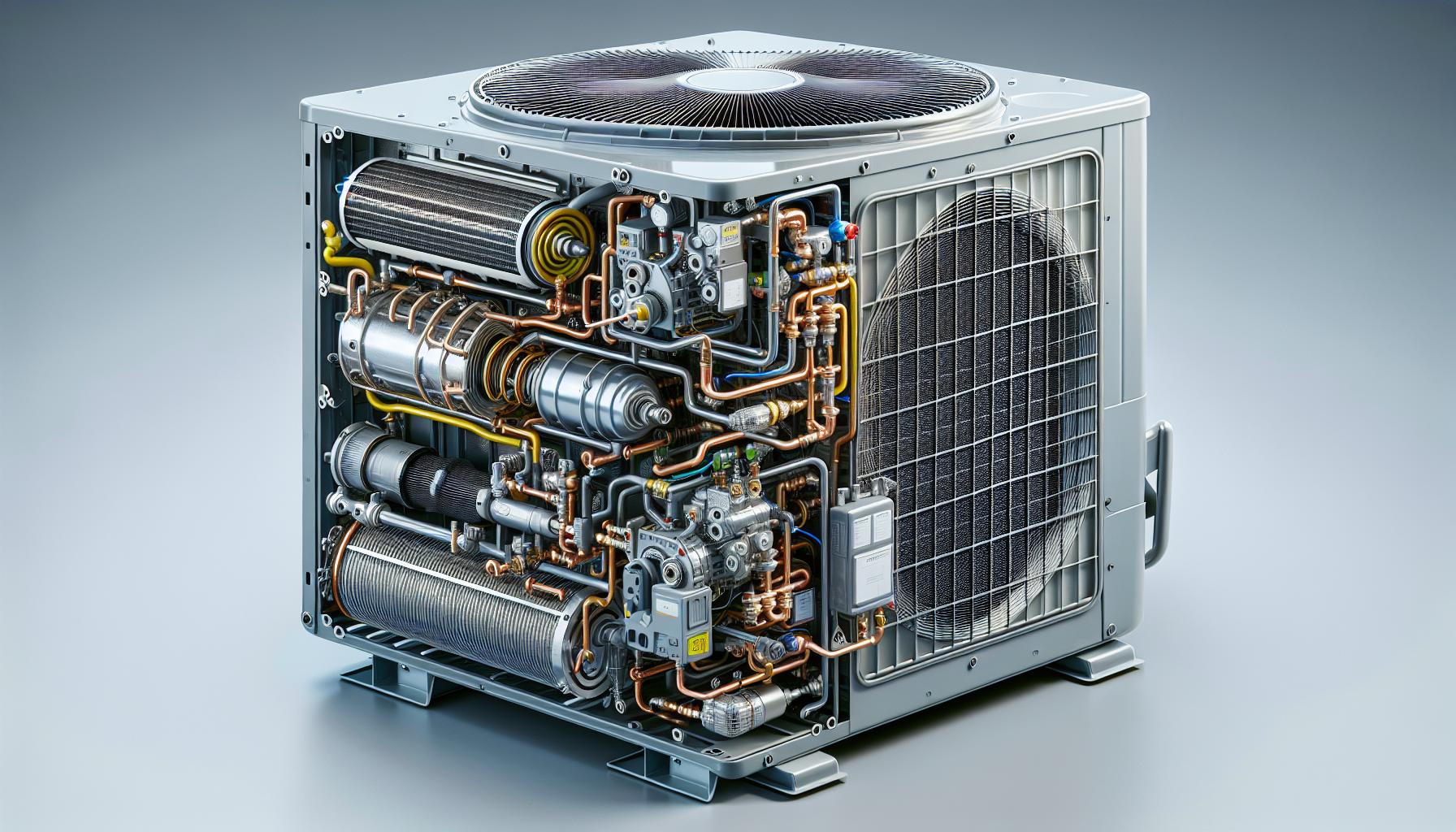
Understanding how your air conditioner operates is key to making informed decisions about its usage and maintenance. ### The Role of Refrigerant in Cooling
Your air conditioner’s ability to deliver cool air hinges on a substance called refrigerant. Here’s how it makes a difference:
- Heat Absorption: Refrigerants like R290 (propane) and R32 are chosen for their capacity to absorb heat from your indoor environment effectively.
- Phase Transition: As the refrigerant transitions from a liquid to a gas state, it pulls heat out of the air, resulting in a cooling effect.
- Environmental Impact: Refrigerants such as R290 are lauded for their low Global Warming Potential (GWP), making them a more environmentally friendly option.
Understanding refrigerants is crucial because they are the backbone of your air conditioner’s cooling process.
The Compression and Expansion Cycle
The compression and expansion cycle in an air conditioner is a continuous loop critical for temperature regulation. Here’s the cycle broken down:
- Compression: Your air conditioner’s compressor converts refrigerant from a low-pressure gas to a high-pressure gas, increasing its temperature.
- Condensation: High-pressure gas travels to the condenser coils, releasing its heat to the outdoors, and condenses into a liquid.
- Expansion: The liquid refrigerant moves through an expansion valve, where its pressure drops, causing it to cool down significantly.
- Evaporation: As the now cooler refrigerant passes through the evaporator coils, it evaporates to a gas by absorbing heat from the indoor air.
This cycle is facilitated by electricity, which powers the compressor and fan motors, illustrating why most air conditioning systems are electrically driven.
By comprehending how the compression and expansion cycle works, you’ll gain insights into the efficiency and operation of your air conditioning unit.
Types of Air Conditioners

When it comes to cooling your home, you’ve got options. Choosing the right type of air conditioner can significantly impact your comfort and energy bills. Let’s explore the common systems you’re likely to encounter.
Split System Air Conditioners
Split systems are the cornerstone of residential air conditioning, especially when you need to cool your entire home. Here’s what sets them apart:
- Consists of an indoor and an outdoor unit, with the indoor housing the evaporator coil and the blower fan, and the outdoor containing the compressor and condenser.
- There’s a flexibility in models, ranging from basic single-stage systems to high-efficiency multistage systems.
- They are excellent for consistent, whole-home cooling, thanks to their widespread circulation ability.
- Improved air quality can be achieved as the system uses filters to clean the air while it cools.
Split system air conditioners are synonymous with central air, offering foolproof temperature regulation across various rooms in your home.
Window Air Conditioners
For those seeking a more focused cooling solution, window air conditioners could be the answer:
- These units are compact and designed to fit in a window, making installation straightforward.
- They’re cost-effective and ideal for cooling single rooms.
- Most models are easy to maintain, with accessible filters and self-evaporation systems for condensed water.
- Considered energy-efficient for small spaces, using less electricity compared to central units or portable ACs.
A window air conditioner is best for targeted areas, serving as a fuss-free alternative to more complex systems.
Portable Air Conditioners
Portable air conditioners cater to those in need of a mobile and temporary cooling solution:
- They can be moved from room to room, offering versatile usage.
- Installation is minimal; they usually only require an electrical outlet and access to a window for the exhaust hose.
- Perfect for renters or homes where window or split systems cannot be installed.
- While they are not as efficient as permanent systems, they provide a quick fix for immediate cooling needs.
Portable air conditioners step in as the go-to for individuals who value flexibility and ease of use over permanent fixtures.
Energy Efficiency of Air Conditioners
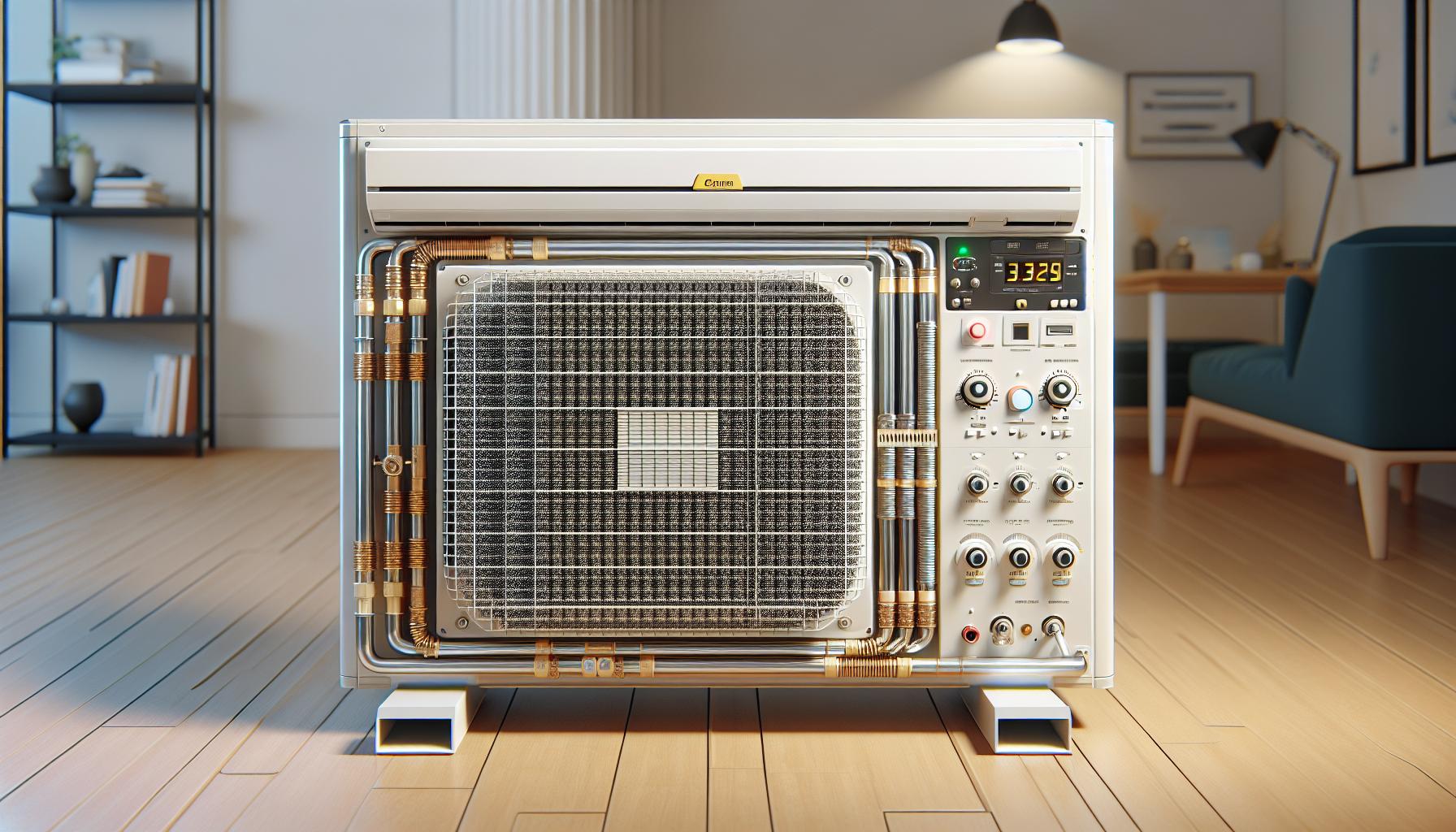
When considering the type of air conditioner to install in your home, energy efficiency is a crucial aspect. Unlike traditional electric AC units, gas-powered air conditioners operate using fuel to power the engine that enables the cooling system. This switch can result in tangible benefits, particularly in your energy consumption and monthly bills.
Gas-powered air conditioners work more efficiently for several reasons:
- Fuel Utilization: These systems convert gas into energy directly on-site, which often leads to a reduction in energy loss compared to electricity that has been transported over long distances.
- System Efficiency: They typically offer a higher level of efficiency compared to some older electric air conditioner models.
- Cost-Effectiveness: You’ll find that the operational costs can be lower with gas power because gas is generally less expensive than electricity and offers steady performance during peak usage times.
It’s important to note that gas air conditioners can also contribute to reducing your carbon footprint. Since they rely on natural gas, they emit fewer greenhouse gases compared to systems powered by electricity generated from fossil fuels.
In real-life scenarios, many homeowners report seeing lower energy bills after making the switch to a gas-powered system. It’s essential, but, to ensure that your specific home and regional energy rates align with these findings before transitioning to a new system.
Understanding how your car’s air conditioning affects gas mileage can mirror the decision-making process for your home’s system. While it uses fuel, operating the AC in your vehicle can be more fuel-efficient at certain times, similar to strategic usage of home cooling systems to optimize energy consumption and costs.
Common Air Conditioner Myths
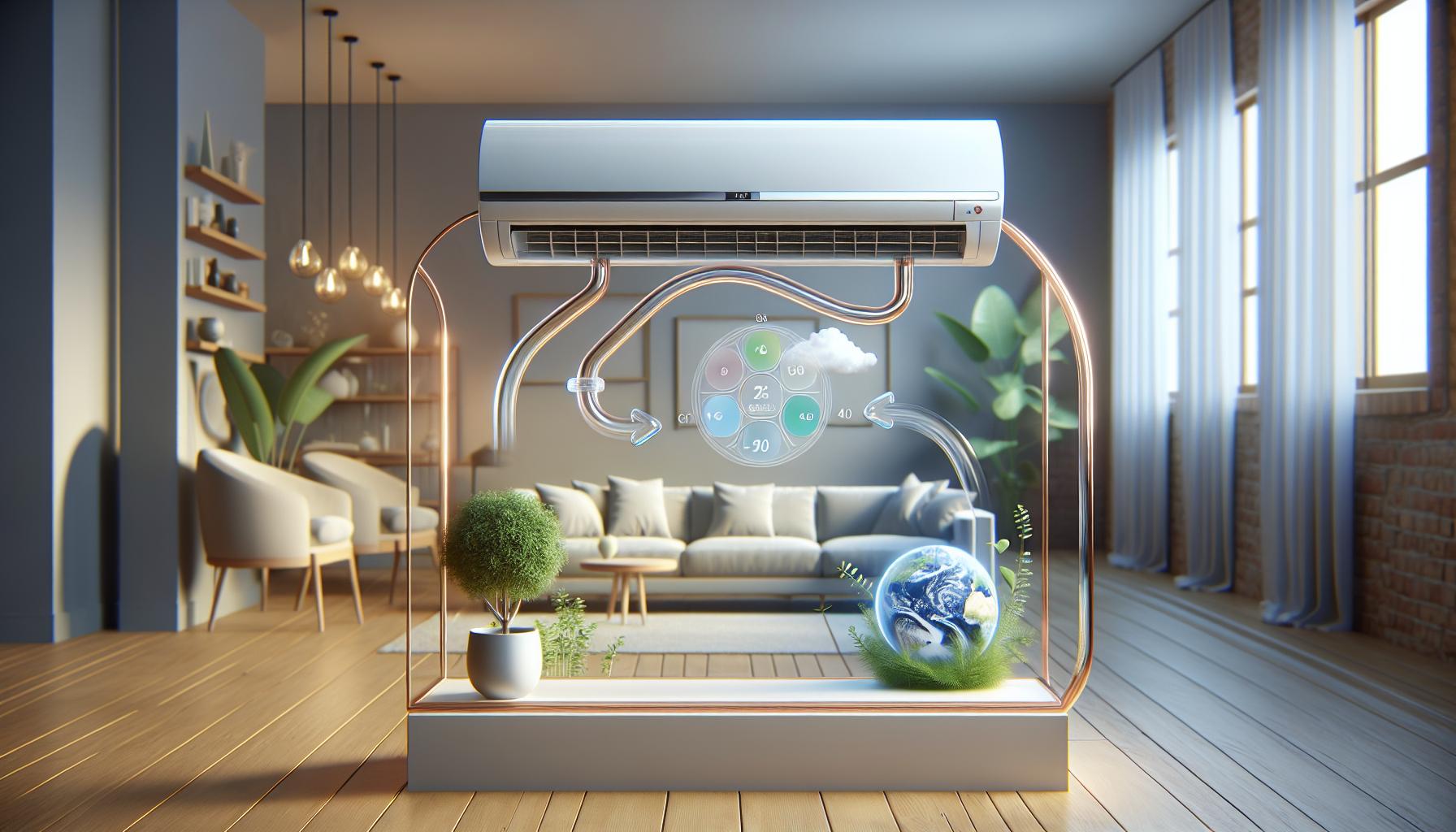
It’s easy to come across misinformation when it comes to understanding how air conditioners operate. Below are some common myths, alongside the facts, to ensure you’re better informed.
Air Conditioners Using Gas for Cooling
Contrary to what some may think, air conditioners do not use gas, like the fuel in your car, to cool your home. Instead, they use a refrigerant, which is a specialized fluid designed for absorbing and releasing heat. The process involves an intricate cycle where the refrigerant transitions from liquid to gas and back, effectively transferring heat from the inside to the outside of your house. Electricity powers the compressor and other components in the system, while gas such as propane may be used for running a furnace that is part of a larger HVAC system, not for the actual cooling process.
Air Conditioners Causing Oxygen Depletion
Another myth is that air conditioners deplete oxygen levels within a room. In reality, air conditioners do not consume oxygen or emit any gases. They simply recycle the air inside a space, cooling it as it passes through the system. Oxygen depletion within a room typically occurs due to inadequate ventilation, not because of the air conditioning unit itself. Ensuring proper ventilation alongside the use of air conditioners is key to maintaining a comfortable and safe indoor environment.
Air Conditioners Being Harmful to the Environment
While it’s true that older air conditioners used refrigerants that were harmful to the ozone layer, significant strides have been made in the industry. Nowadays, modern air conditioners employ more climate-friendly gases. These newer fluids have a lower global warming potential and are part of the push towards reducing greenhouse gas emissions. Plus, with technological advancements, today’s air conditioners are designed to be more energy-efficient, cutting down on electricity usage and contributing to a reduced carbon footprint.
Remember, while some concerns about air conditioners and the environment are valid, significant improvements and regulations are transforming the industry to be more eco-conscious. Always check for the latest and most environmentally friendly options when considering a new air conditioning unit.
Conclusion
You’re now equipped with the truth about air conditioners and their operation. Forget the old myths about gas usage and oxygen depletion it’s all about the refrigerant cycle and efficient design. Remember to stay informed about the latest eco-friendly models to keep your carbon footprint in check. When it’s time for an upgrade, choosing a modern, energy-efficient air conditioner is not just a smart choice for your home but for the planet too.
